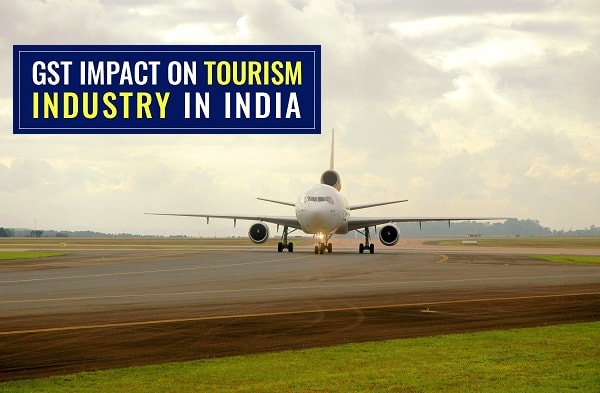How Outsourced Accounting Services Can Help Your Accounting Firm in COVID-19 Pandemic
The coronavirus pandemic has seriously affected several sectors…

The tourism industry in India is certainly among the fastest growing business segments in the country. The hotel and travel industries together crossed the $137 billion mark by the end of the year 2016. It is therefore no wonder that GST would also impact the tourism industry in India significantly. Ever since Goods and Services Tax was implemented in the country on July 1, 2017, economists have speculated about the possible impacts that this new tax reform is going to have on the business landscape. A closer look on the various current trends in Indian tourism industry will show that things have turned for the better after the implementation of GST.
One of the ways in which GST has helped the tourism industry to thrive is that in some cases, it has helped to bring down costs for customers thereby making it easier for them to afford better holidays. GST has also helped to consolidate multiple taxes into one single tax value which in turn have helped to decrease transaction costs associated with tourism business. This can certainly appeal to the concerned business owners who originally believed that the GST is going to make things difficult for them. However, there have also been some challenging aspects associated with the many positive outcomes of GST implementation in the tourism industry.
One of the distinct aspects of the GST is that under it, the hospitality domain receives the advantage of uniform and standardized tax rates. Utilizationof the input tax credit or ITC has improved greatly, making things simpler and better. Additional services like complimentary food wereonce taxed separately under the VAT. These included facilities such as breakfast offers with room services. Under the new GST system, such services are going to be taxed as bundled services. One of the most positive effectsassociated with GST for hotels is that the end cost that is to be duly paid by the consumers is going to decrease. This is going to make it easier for hotels to attract more customers or tourists as well as enhance the growth of business within the industry. Such a move is could also increase the overall revenue collection for the government.
Most of the hotels in the Indian subcontinent have a dynamic pricing policy, which means that they fix the tariffs manually based on the overall number of tourists that they can expect in a season and based on demand and supply. The tariff therefore keeps changing from time to time. As the GST rates tend to vary for the different tariff levels, hotels need to make sure that the billing software that they use also updates the tax rates based on the overall room tariff over the distribution channels that include the online aggregators and the travel agencies. This can help the customers in the long run and make sure that transparency is maintained in relation to the hotel tariffs.
For questions relating to GST and indirect taxes, you can write to us at info@asitmehtaassociates.com
More about our GST and indirect tax services: Indirect tax services